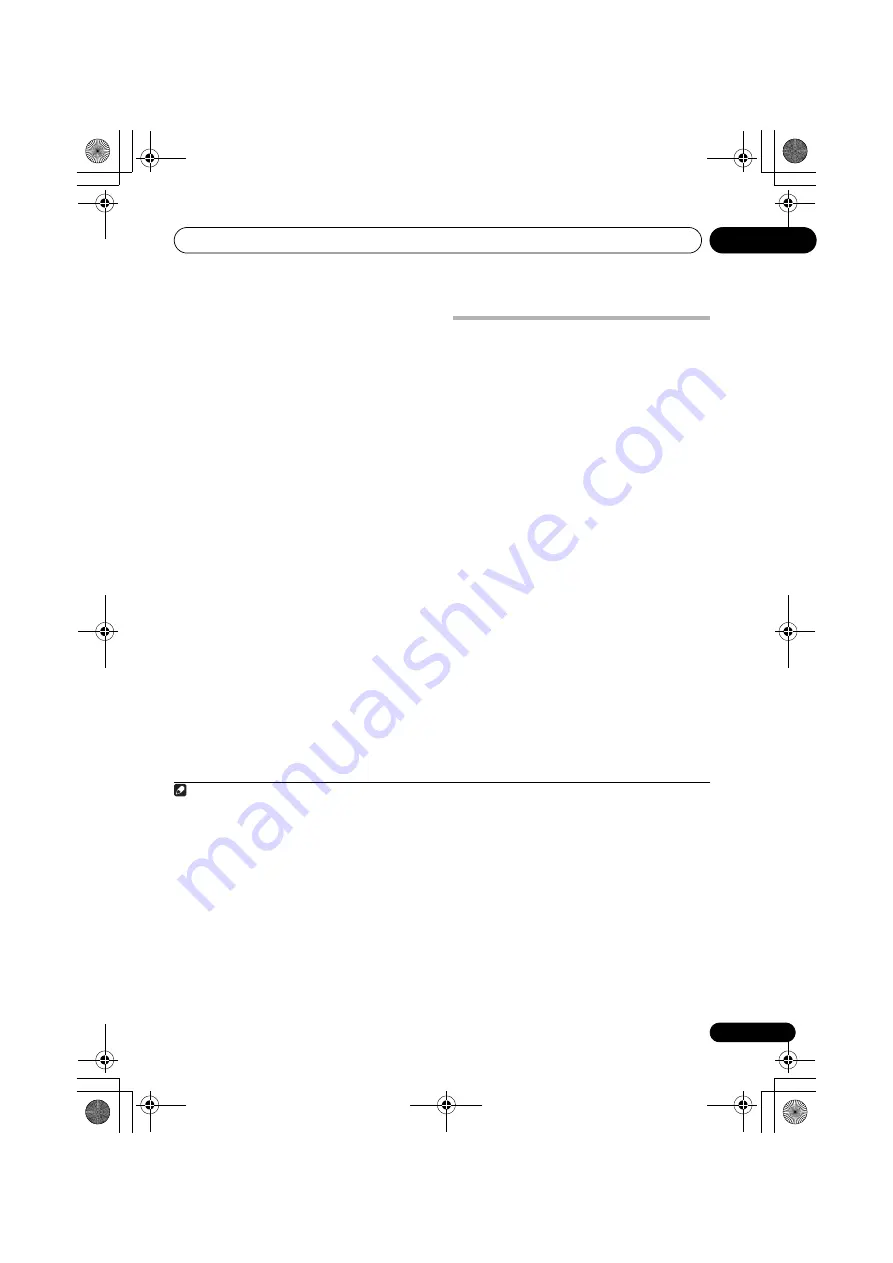
Basic playback
05
47
En
Playing a source with HDMI
connection
•
Use INPUT SELECT to select the HDMI
input you’ve connected to (for example,
HDMI 1).
You can also perform the same operation by
using the
INPUT SELECTOR
dial on the front
panel or by pressing
HDMI
on the remote
control repeatedly.
• Set the HDMI parameter in
Setting the
Audio options
on page 72 to
THROUGH
if
you want to hear HDMI audio output from
your TV (no sound will be heard from this
receiver).
• If the video signal does not appear on your
TV, try adjusting the resolution settings on
your component or display. Note that some
components (such as video game units)
have resolutions that may not be
converted. In this case, use an analog
video connection.
Playing an iPod
This receiver has the
iPod/iPhone/USB
terminal that will allow you to control playback
of audio content from your iPod using the
controls of this receiver.
1
1
Switch on the receiver and your TV.
See
Connecting an iPod
on page 36.
• It is also possible to operate the iPod on the
iPod itself, without using the TV screen. For
details, see
Switching the iPod controls
on
page 48.
2
Press iPod USB on the remote control to
switch the receiver to the iPod/USB.
Loading
appears in the GUI screen while the
receiver verifies the connection and retrieves
data from the iPod.
When the display shows the
iPod
top menu
you’re ready to playback from the iPod.
2
Playing back files stored on an iPod
To navigate songs on your iPod, you can take
advantage of the GUI screen of your TV
connected to this receiver.
3
You can also
control all operations for music in the front
panel display of this receiver.
Note
1 • This system is compatible with the audio and video of the iPod nano (audio only for the iPod nano 1G/2G), iPod fifth
generation (audio only), iPod classic, iPod touch and iPhone. However, some of the functions may be restricted for
some models. The system is not compatible with the iPod shuffle.
• Compatibility may vary depending on the software version of your iPod and iPhone. Please be sure to use the latest
available software version.
• iPod and iPhone are licensed for reproduction of non-copyrighted materials or materials the user is legally permitted
to reproduce.
• Features such as the equalizer cannot be controlled using this receiver, and we recommend switching the equalizer
off before connecting.
• Pioneer cannot under any circumstances accept responsibility for any direct or indirect loss arising from any
inconvenience or loss of recorded material resulting from the iPod failure.
2 • The controls of your iPod will be inoperable when connected to this receiver.
•
VSX-31 only:
The sub zone OSD screen shows the same content as the main zone GUI screen. Note, however, that
characters other than alphanumeric letters and numbers cannot be displayed and will be replaced by
#
.
• VSX-30 only:
iPod/USB function cannot be selected for the MULTI-ZONE feature (page 77).
3 • Note that characters that cannot be displayed on this receiver are displayed as
#
.
• This feature is not available for photos on your iPod. To display photos, switch iPod operation to the iPod (see
Switching the iPod controls
on page 48).
VSX-31_30_UC.book 47 ページ 2010年8月25日 水曜日 午前9時28分






























